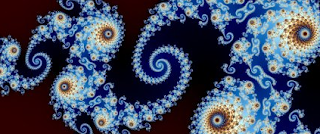The online, open-access Journal of Humanistic Mathematics (JHM) publishes new issues twice each year -- and the first issue for 2022 is now available and is rich with math-poetry offerings. One of the fun items is a folder of Fibs, featuring contributions (with email contact information) from:
Tatiana Bonch-Osmolovskaya, Gerd Asta Bones, Robin Chapman,
Marian Christie, Marion Deutsche Cohen, Stephen Day,
Carol Dorf, Susan Gerofsky, Sarah Glaz,
David Greenslade, Emily Grosholz, JoAnne Growney,
Kate Jones, Gizem Karaali, Lisa Lajeunesse,
Cindy Lawrence, Larry Lesser, Alice Major,
Kaz Maslanka, Dan May, Bjoern Muetzel,
Mike Naylor, Doug Norton, Eveline Pye,
Jacob Richardson, S. Brackett Robertson,
Stephanie Strickland, Susana Sulic,
Connie Tettenborn, Racheli Yovel.
And the current JHM issue contains five more poems -- thoughtful and thought-provoking: "What's So Great About Non-Orientable Manifolds?" by Michael McCormick, "Wrong Way" by Joseph Chaney, "The Solipsist’s First Paper" by Sabrina Sixta, "Heuristic or Stochastic?" by E Laura Golberg, and "So Long My Friend" by Bryan McNair.
In closing, I offer here a sample from the folder of Fibs, this one written by Gizem Karaali, one of the editors of JHM.
Where does math come from?
If
You
Want to
Do some math,
Dive into the depths
Of your mind, climb heights of your soul.
Thank you, Gizem Karaali, for your work in humanizing mathematics!






